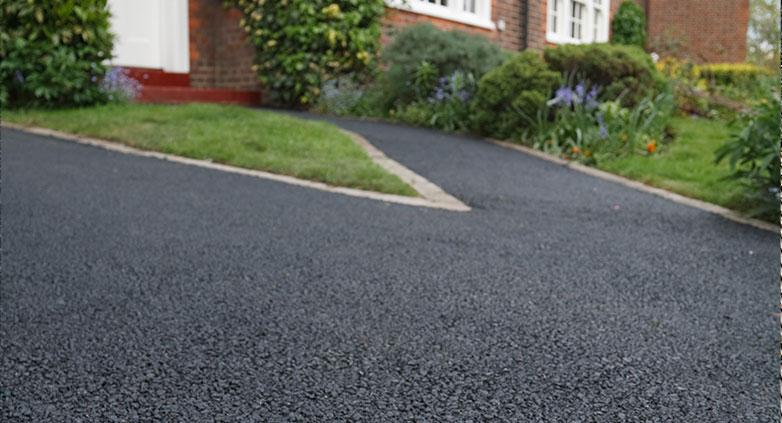
As a homeowner, you know that cracked and broken driveways can give way to several dangers, not least of which is tripping and falling on an icy winter’s day. Unfortunately, in a northern city like Detroit, there is a huge difference between temperatures in the summer months and those cold winter days. This can often wreak havoc on walkways and driveways and if your driveway is in need of resurfacing, perhaps it’s time to consider paving it with eco-friendly asphalt.
Easy to Care for Asphalt Driveways
Before even trying to understand how asphalt is considered to be environmentally safe, perhaps you want to know just how to care for your home’s asphalt driveway. Is it easy to care for? You can be an Allentown, PA medical malpractice lawyer or an unemployed person living on your parents. It is easy. Actually, unlike some exterior elements on your property like gutters, asphalt only needs to be visually inspected once a year. Most often the best time is just after the spring rains and prior to the extreme heat of the summer. Any cracks, pits or tears should be filled in immediately and the beauty of this is that most often you will not need to dig up large swatches of pavement. You can simply fill and smooth those cracks.
Working Toward a Greener Tomorrow
According to the LEED rating system of the U.S Green Building Council, asphalt is rated as the pavement of choice all around the nation. States like Oregon have determined asphalt to be the most environmentally safe based on the low consumption of energy in the production process, the ability to recycle broken-up asphalt pavements, and the low emission of greenhouse gases. If you are working toward a greener tomorrow in Detroit, and indeed all of Michigan, you might want to follow Oregon’s lead in naming asphalt your personal pavement of choice.
The First 14 Days Are Critical

You began by questioning how to care for your home’s asphalt driveway and so it should be noted right up front that the first 14 days after paving are critical. You must set up barriers so that no one drives or walks on it for at least the first three to five days and, in addition to that, do not park any vehicle on that freshly paved driveway for at least the first two weeks. Early summer makes for a perfect time to pave your driveway because the days shouldn’t be too hot to walk from the road to your door and of course winter is not the time for doing any outdoor installations. Just remember how critical those first two weeks are and you will have the safest, most eco-friendly driveway on the block!
Isn’t it odd that we’ve considered asphalt to be a paving solution of days gone by with so many trendier surfaces to choose from? However, sometimes we’ve opted for fashion over function, and function over safety, and that is a problem with many of today’s driveways and roads. There really is something to be said of older, time-tested solutions we’ve long considered to be obsolete. Luckily, with a focus on greening up America, the benefits of asphalt are once again in the limelight. If this is the year to resurface your driveway, then asphalt it is!
